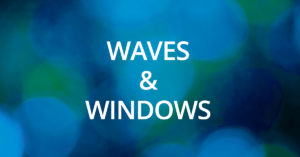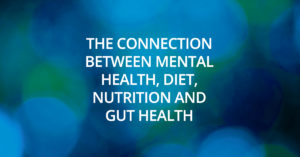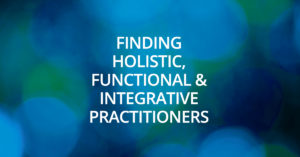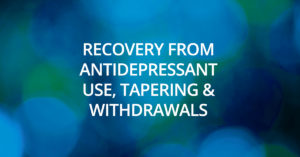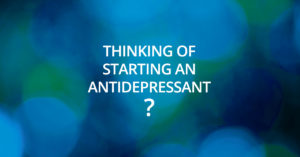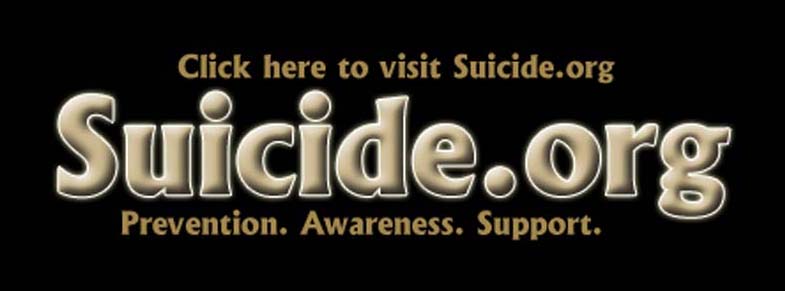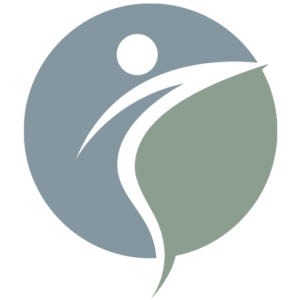DISCLAIMER: THIS IS NOT MEDICAL ADVICE! We do not employ doctors or licensed medical professionals, so we do not provide medical advice. Nothing presented here is a substitute for the advice of a DOCTOR or other licensed health care provider. Never stop, start or add medications or supplements to your health or mental health care regime without first checking for interactions or other problems, and thoroughly researching the substance. Before you employ any information here, consult your health care professional. No information here is the result of valid clinical trials.
Supplements should only be taken after having a full medical check to see what is needed. There is no point in wasting money and hope on something which is not lacking in your body. In fact, taking unnecessary supplements can add to our problems.
Drug and supplement interaction checker: http://www.drugs.com/drug_interactions.html
Cymbalta Drug Interactions: http://www.drugsdb.com/rx/cymbalta/cymbalta-drug-interactions/
Combinations of Drugs and Supplements that can induce serotonin syndrome: http://www.uspharmacist.com/content/d/feature/c/23707/
Supplements to Avoid
- This page is intended for people still taking Cymbalta / Duloxetine and also those suffering withdrawals from it.
- Before you add drugs, supplements, vitamins, over-the-counter medicines - even foodstuffs - to your diet, please think and check for interactions. www.drugs.com
- Only negative effects are listed here. When we are on anti-depressants, in recovery or even post-recovery, we may be more liable to side effects caused by supposedly natural supplements. Please don’t add to that risk.
- When doing a Google search remember to add “serotonin/Cymbalta and (whatever supplements you are researching)". You will find many conflicting results. Please think carefully about what you find.
- There are no guarantees that any of these supplements / foods will have any effect at all, whether positive or negative. Remember the power of the placebo. Please keep an open mind. Take no risks.
- Different countries have different regulations. Be aware that people with different backgrounds will have different attitudes. Please be open and accepting. https://www.nutriadvanced.co.uk/what-we-wont-sell
Commonly used supplements and medications
Check for yourself at www.drugs.com then make your own decisions.
- Antihistamines may increase blood levels
- Pain killers may increase risk of bleeding
- Flu treatments may contain dextrometorphan.
- Fluoride (in water, toothpaste and during dental work) is considered a neurotoxin
https://bebrainfit.com/fluoride-neurotoxin/
Don't get serotonin syndrome
Supplements that increase serotonin can also increase the risk of serotonin syndrome, especially when taken in combination with other serotonin-affecting drugs, or while in withdrawal. For many people it is not a matter of LOW serotonin, but of poor serotonin metabolism. Recent studies show that many types of anxiety are a result of HIGH serotonin instead of low serotonin, so taking a supplement that increases serotonin can also increase problems.
- Dextromethorphan - basic ingredient of most cough medicines
- 5-Htp (The tp stands for tryptophan.)
- Niacin- see tryptophan
- Tryptophan increases serotonin – in fact, it causes the body to produce it. There is a major interaction potential for Cymbalta and 5-Htp in www.drugs.com.
- Tryptophan in food
CHW recommends avoiding any supplements that increase tryptophan, but https://www.medicalnewstoday.com/articles/l-trytophan-supplements#other-sources suggests that it is safe as part of the regular diet. You may find this is called a "myth".
For those of you who want to be on the safe side, this article lists turkey, tuna, nuts, seeds, bananas, dairy products, red meat, shellfish and soy products as high in tryptophan. Avoid them.
- SAMe
https://www.mayoclinic.org/drugs-supplements-same/art-20364924
- St John's Wort
https://www.nccih.nih.gov/health/st-johns-wort-and-depression-in-depth
The author tried to find anything reliable and useful about using GABA supplements. (Gamma Aminobutyric Acid) The following is from previous CHW files.
- GABA
Stimulation of GABA causes your body to relax and can induce sleep. GABA supplements add to your body's GABA supply, producing a calming effect.
Antidepressants stimulate the GABA in your body, producing a calming effect. Taking both would increase your GABA supply, leading to overload. There is no clarification of what "overload".
See below: How does serotonin affect my body and brain?
Don't give yourself GI problems – diarrhea, vomiting and all the rest
These have all been researched and it seems they are all likely to cause the above problems:
- Ashwagandha
- DIM
- Holy basil
- Inositol
- L-theanine
- SAMe
Don't give yourself other side effects
- L-Theanine - this MAY do all sorts, MAY cause headaches, MAY work like glutamate …
https://www.webmd.com/vitamins/ai/ingredientmono-1053/theanine
- LDN Naltrexone side effects: dizziness, fainting, headache, insomnia, anxiety, nervousness, sleepiness, fatigue, nausea, vomiting, diarrhea, abdominal pain/cramping, decreased appetite, injection site pain and swelling, joint pain, excessive muscle contraction, upper respiratory tract infection, sore throat
Researchers "don't yet understand" how LDN works. Researchers "theorize"; "some evidence suggests".
https://www.verywellhealth.com/low-dose-naltrexone-ldn-for-fibromyalgia-cfs-716070
- Maltodextrin: increase in weight, bloating and flatulence, itching, rash, allergic rhinitis or asthma.
Why Maltodextrin Stinks | Why You Should Not Use It | Alternative (proteinfactory.com)
- Melatonin: according to the Mayo Clinic, it is "generally safe for short-term use". It then warns of: headache, dizziness, nausea, drowsiness …and other possible side effects such as depression, mild tremor, mild anxiety, abdominal cramps, irritability, reduced alertness, confusion or disorientation, and abnormally low blood pressure (hypotension). And no driving withing 5 hours of taking it.
- Milk thistle: headaches, painful joints, insomnia, tiredness, fatigue, weakness, bloating, gas, impotency, diarrhea, breathing problems, skin rashes, swollen face, nausea, swollen tongue, digestion problems, swollen lips, heart related problems, swollen throat and a loss of appetite.
https://ic.steadyhealth.com/side-effects-of-milk-thistle
- Quinine: fever, diarrhaea or constipation, delirium, anaemia, asthma, hepatitis and kidney damage
https://ic.steadyhealth.com/side-effects-of-quinine-sulphate
- Q96 - MAY do all sorts of things; lots of potential side effects from the natural ingredients.
- Niacin: headache, dizziness, low blood pressure
- Selenium: nausea, vomiting, nail changes, loss of energy. irritability
- Zinc: loss of appetite, stomach pains, diarrhea
- Folic acid (more than 1 mg daily): sleep disorders, rashes, behavioral changes, seizures, gas
https://www.findingoptimism.com/q96-review/#q96-claims
- Rhodiola MAY help anxiety and depression; MAY affect liver function adversely; MAY have interactions with other drugs
https://www.webmd.com/vitamins/ai/ingredientmono-883/rhodiola
- Serpentina - side effects include nasal congestion, stomach cramps, diarrhea, nausea, vomiting, loss of appetite, drowsiness, convulsions, Parkinson's-like symptoms, and coma.
https://www.rxlist.com/indian_snakeroot/supplements.htm
- Valerian: headache, dizziness, itchiness, upset stomach, dry mouth, vivid dreams, daytime drowsiness, liver damage
https://www.verywellhealth.com/what-you-need-to-know-about-valerian-88336
Foods and Supplements to Avoid
when on an Antidepressant or in Withdrawal
OTCs:
Antihistamines
- Benadryl
NSAIDS
- Fluoride - Eliminate it from your drinking water, your toothpaste and your dentist visits.
- Alka Seltzer Flu Formula (major drug interaction) - https://www.drugs.com/drug-interactions/alka-seltzer-plus-flu-formula-with-cymbalta-38-15537-949-2273.html
Foods and Drinks
Many who take anti-depressants have dietary problems. They may be solved or lessened by avoiding or reducing intake of all or some of the following. Some readers will dismiss this as pseudo-science. Others will try anything to help manage an eating problem induced by anti-depressants. I make no apologies for including these.
- Anything that converts directly to sugar when consumed
- Alcohol
- Energy Drinks
- Artificial Sweeteners
- Caffeine
- Dairy products
- Gluten
- Grapefruit and Grapefruit Juice
- Nicotine - causes rapid dips and spikes in blood sugar
- Simple Carbohydrates (limit)
- Sugar
Dairy-free and gluten-free?
It is worth trying a dairy-free, gluten-free diet to see whether it affects mental health.
There is some evidence to suggest that schizophrenic and psychotic behaviour is affected by these two fundamental elements of many - most? - people's diet.
Researchers have linked schizophrenia and Celiac disease. This suggests that the immune system may well play an important role in mental health.
It has been suggested that there may be natural opiates in dairy products which first give pleasure while eating, followed quickly by withdrawal symptoms.
In one study, "a 33-year-old patient, with pre-existing diagnosis of 'schizophrenic' disorder ... started a gluten-free diet ... resulting in a disappearance of psychiatric symptoms ..." This means that someone avoided a lifetime of medication with antipsychotics by eliminating gluten from their diet.
http://www.ncbi.nlm.nih.gov/pubmed/21877216
https://www.kellybroganmd.com/blog/two-foods-may-sabotage-brain
http://www.dynamicchiropractic.com/mpacms/dc/article.php?id=54571
http://suzycohen.com/articles/vitamin_supplement_interaction/#.VsmiCM2wlgY.facebook
How does serotonin affect my body and brain?
According to https://www.healthline.com/health/mental-health/serotonin#mental-health, serotonin affects every part of your body, from your emotions to your motor skills.
- It is considered a natural mood stabilizer, helps reduce depression and regulate anxiety.
Serotonin in the brain is thought to regulate anxiety, happiness, and mood. Low levels of the chemical have been associated with depression, and increased serotonin levels brought on by medication are thought to decrease arousal. (Editor’s italics)
Is “thought to” a scientific term? Is it a good enough reason to put millions of people on psychotropic drugs?
- It helps with sleeping, eating, and digesting.
- It helps heal wounds, stimulate nausea and maintain bone health.
Bowel movements / nausea: serotonin is found primarily in the body’s stomach and intestines. It helps control your bowel movements and their function. Increased amounts of serotonin cause noxious or upsetting foods to be more quickly pushed out in diarrhea. The chemical also increases in the blood, which stimulates the part of the brain that controls nausea.
Is this why so many people taking Cymbalta complain of GI problems, especially diarrhea?
Sleep: serotonin is responsible for stimulating the parts of the brain that control sleep and waking. Whether you sleep or wake depends on what area is stimulated and which serotonin receptor is used.
If we could find out what area, which receptor, could we then solve our insomnia problems?
Blood clotting: blood platelets release serotonin to help heal wounds. The serotonin causes tiny arteries to narrow, helping form blood clots.
Bone health: Serotonin plays a role in bone health: high levels of serotonin in the bones can lead to osteoporosis, which makes the bones weaker.
Sexual function: Low levels of serotonin are associated with increased libido, while increased serotonin levels are associated with reduced libido.
Is this why many members complain of loss of libido?
CHW Waves & Windows
DISCLAIMER: THIS IS NOT MEDICAL ADVICE! We do not employ doctors or licensed medical professionals, so we do not provide medical advice. Nothing presented here is a substitute for the advice of a DOCTOR or other licensed health care provider.…
Read MoreCHW The Connection Between Mental Health, Diet, Nutrition and Gut Health
Diet, nutrition, and chronic systemic inflammation are linked to health and mental health disorders such as anxiety, depression, bipolar, and even schizophrenia. Below are links to articles that discuss this promising way to naturally address these conditions.
Read MoreCHW Finding Holistic, Functional & Integrative Practitioners
If your doctor is prescribing Cymbalta and other toxic psychotropics, you may be better served by finding a doctor that will try to help you find the cause of your condition rather than masking it.
Read MoreCHW Recovery from Antidepressant Use
This file contains links to the most important files on RECOVERY. We highly recommend printing
out files for quick reference, and then highlighting the areas that are important to your needs.
CHW Lost your insurance
If you have found yourself without insurance and can’t afford Cymbalta we have links that may help.
Read MoreCHW Thinking of Starting an Antidepressant?
Informed consent and questions for your doctor. For example: When doctors say this… ask this.
Read MoreLooking for help with something?
Search our site below...
Please take the time to report your adverse symptoms from Cymbalta and Cymbalta withdrawal to the FDA. Call 1-800-332-1088 ![]()
© 2019 Healing America Now

